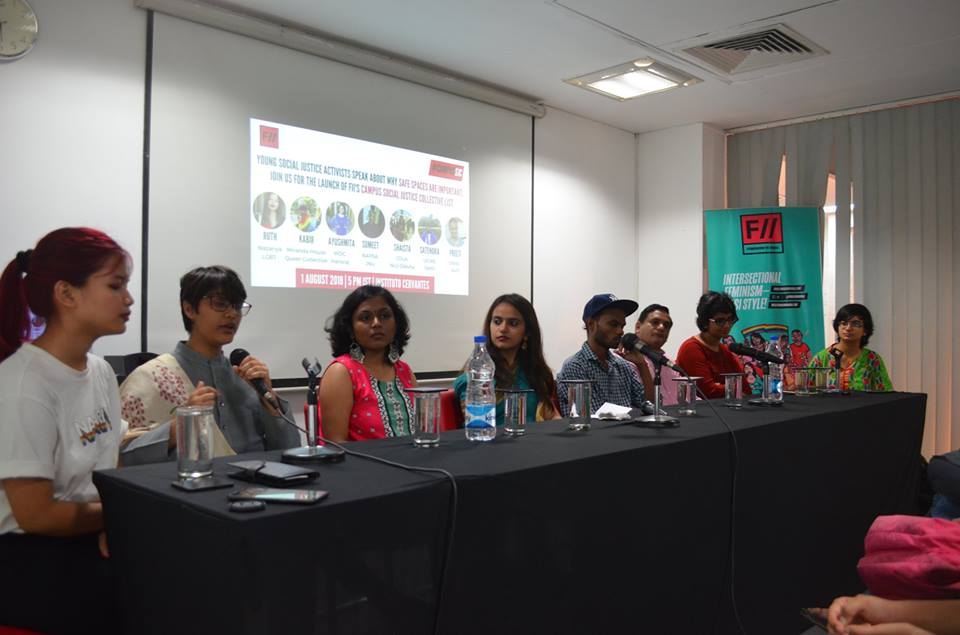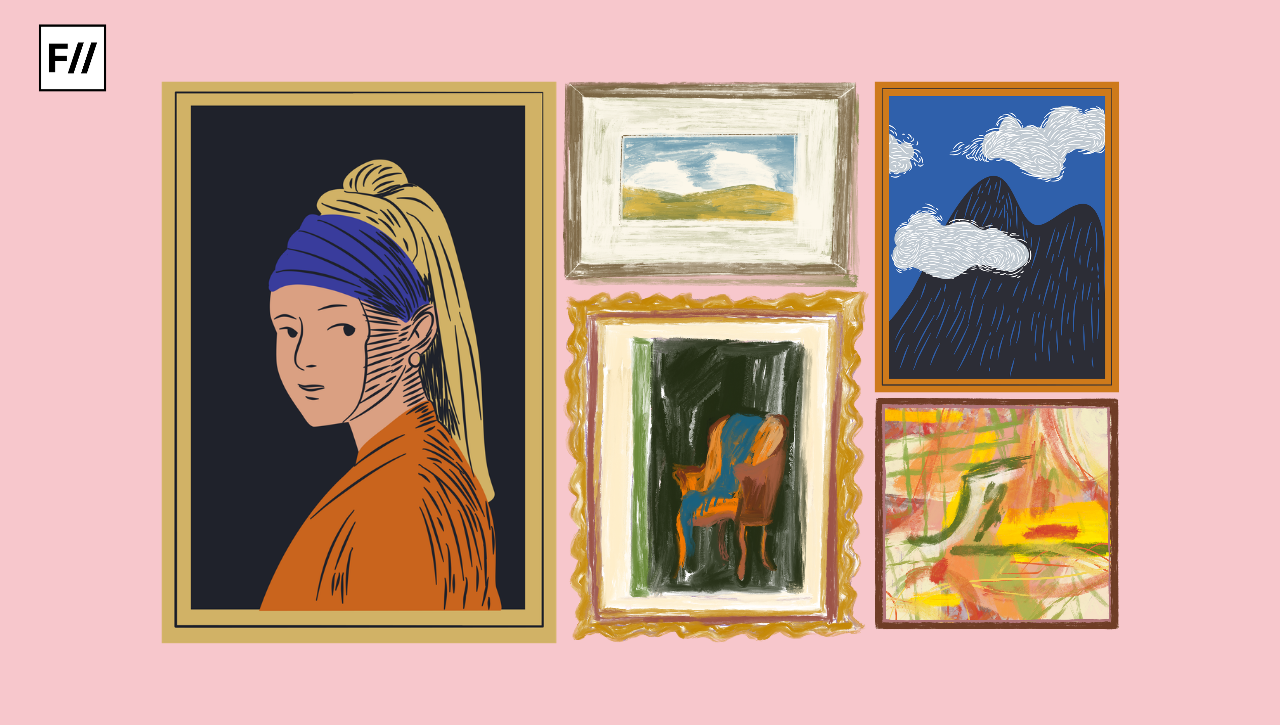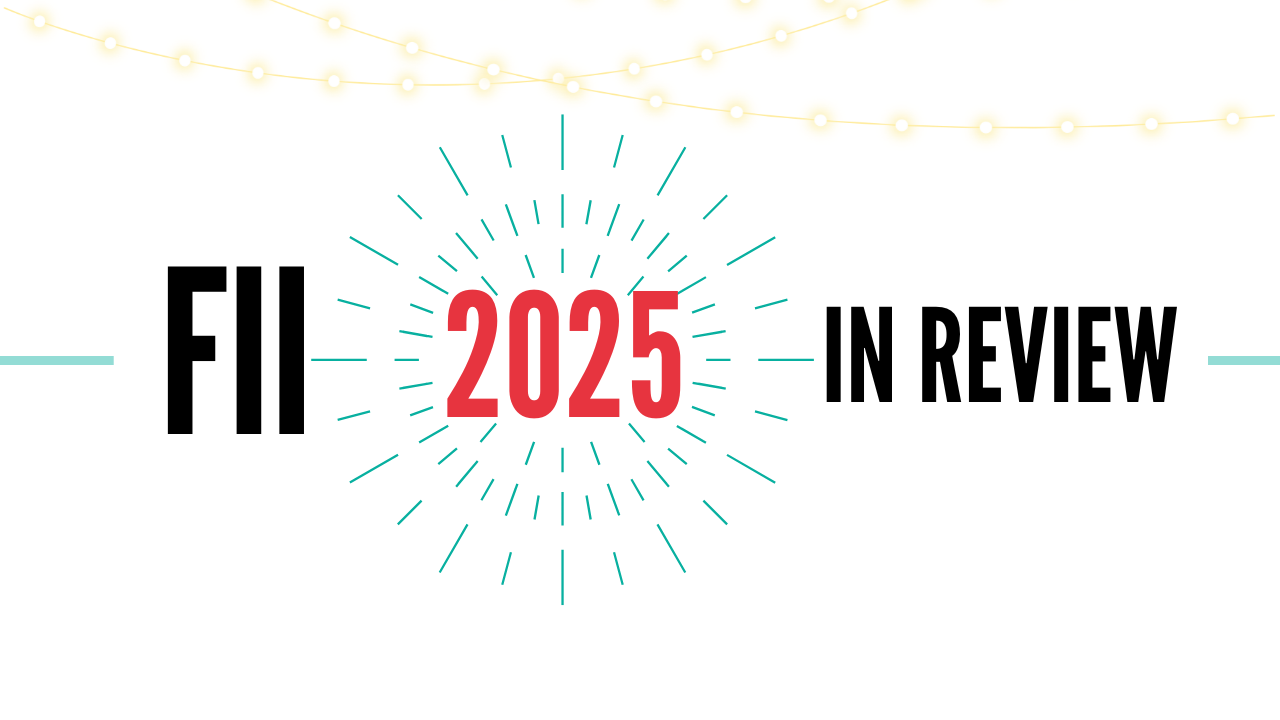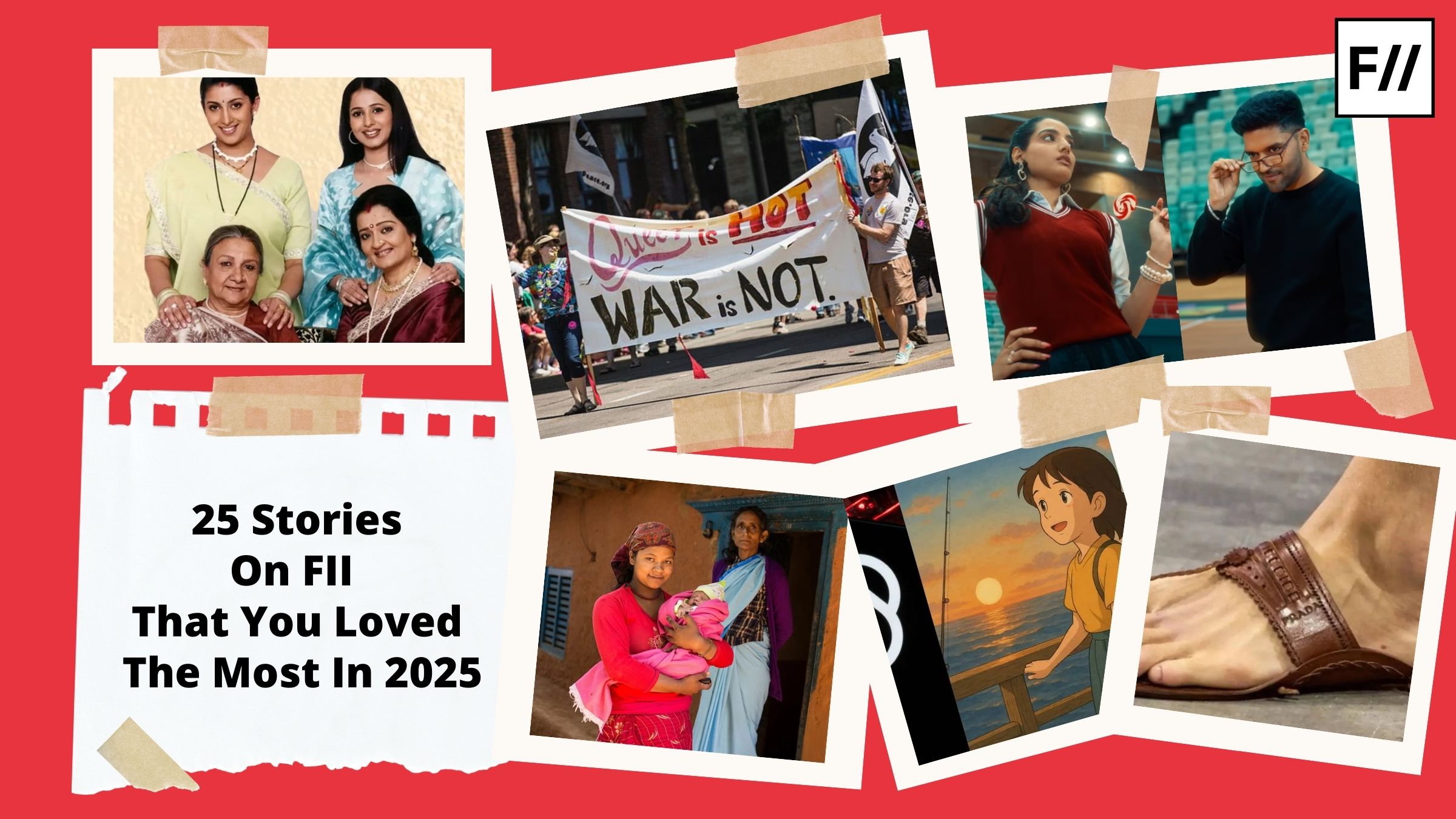On 1st August 2018, Feminism in India launched its first resource document ‘The Crowdsourced List of Campus Social Justice Collectives’ (which is now available on our website). This list is the first step in building FII’s resource centre and inching one step closer to fulfilling FII’s dream of become a one-stop platform for everything related to Indian feminism.
The launch event and panel discussion was organised at Instituto Cervantes, New Delhi. The event mostly saw young people and students in attendance along with representatives from some of the collectives featured on the list. We had anticipated about 30-40 people to attend the event but were pleasantly surprised to see so many enthusiastic and responsive audience members with the total numbers far exceeding our expectations.
The event kicked off with FII’s Founder-Director Japleen Pasricha talking about what FII does along with explaining our future goals – one being our aim to serve as a feminist resource centre. She also demonstrated how the list can be accessed and used while also indicating that there will be constant updates on the list as more research is done. The list mapped close to 200 collectives in 20 cities. This was followed by a short Q&A session where audience members asked pertinent questions with regards to the list and its applicability, and some even made helpful suggestions about including centres that dealt with child sexual abuse in schools.
Our event on #CampusSJC has begun! FII founder @japna_p introduces our crowdsourced list that maps feminist/queer/anticaste/disability rights collectives across Indian campuses. Check it out here: https://t.co/rJ9f0SXKUI pic.twitter.com/8hRliapvjB
— Feminism in India (@FeminismInIndia) August 1, 2018
A lively panel discussion took place soon after, with panelists coming from diverse backgrounds and consisting of young social justice activists who have been defying social stigma and fighting for their rights to self assert. The panel was made up of Ruth Chawngthu, Co-Founder of Nazariya LGBT; Ayushmita Samal, Vice President of WDC – Hansraj College; Kabir Trivedi, Founder-President of Miranda House Queer Collective; Sumeet Samos, activist of BAPSA – JNU; Preeti Nangal, who is a member of the Dalit Bahujan Adivasi Collective – AUD; Shaista Parwin, who is the Convener at the Centre for Disability, Law and Advocacy at NLU, Odisha; and Dr. Satendra Singh who is Founding-Coordinator of Enabling Unit at University College of Medical Sciences, Delhi.
At @FeminismInIndia‘s Panel Discussion on Social Justice Collectives in various universities across India.
The SJCs list is available on FII’s website.#CampusSJC pic.twitter.com/cqHDTeBiG3— WDC, Hansraj College (@wdchansraj) August 1, 2018
Ruth Chawngthu talked about the need to radicalise one’s activism and the need to re-examine the queer movement so that it can be more representative of the needs of those who are socially marginalised and the need to look at how queerness intersects with other social justice issues while emphasising on the need to ensure that these safe spaces remain safe for those they are aiming to support.
We are so happy & proud to attend the launch of a resource list of #CampusSJC by @FeminismInIndia
Find a list of safe spaces in campuses all over India here https://t.co/JhLXc4BJVA
Congratulations on this important project @japna_p @asmitaghosh18 & team ♥️— TheaCareApp (@WomensHealth_in) August 1, 2018
Kabir Trivedi spoke of the restrictions he had faced with college administration and how the Miranda House College administration remained relatively apathetic to the needs of its queer students. He also mentioned the need for upper caste/upper class people to acknowledge their privileges and let marginalised people speak for themselves. Both Kabir and Ruth expressed that their queer society proposals were unfairly rejected by their respective college authorities.
"We found out that 18% of 3500 students at Miranda House College were either queer or questioning, but our college administration didn't allow us to be a formal collective." — Kabir, Head at Queer Collective Miranda. #CampusSJC pic.twitter.com/oezORv2MaJ
— Feminism in India (@FeminismInIndia) August 1, 2018
Ayushmita Samal talked about the constraints of being the head of an official society and often having to partake in events that do not align with one’s beliefs to appease the administration. She also spoke about how we shouldn’t try to always convince everyone to be feminists if they do not want to be.
Sumeet Samos talked about his work with BAPSA and the impact it has on Dalit Bahujan students in JNU while also talking about the issues they faced from various political outfits on campus who questioned the need for their existence. He mentioned how it was the time for self-representation and that marginalized groups did not need other people to speak for them anymore. Academia and resistance had been dominated by the upper castes and classes and it was time to let Dalit Bahujan and Adivasi people speak for themselves.
“I don’t call it reservation, I call it representation” – Sumeet, BAPSA #CampusSJC
— Marios (@ssmariof) August 1, 2018
Dr. Satendra and Shaista Parveeen described the constraints they face from society and administration of their institutions while fighting for disability rights and fighting for accessibility facilities to be installed on their campuses while also revealing how much societal attitudes affect disabled people. Dr. Satendra mentioned the struggles for something as basic as setting up a ramp for wheelchair users at his college’s ATM, which took 8 years.
'When I was invited to be a part of UCMS' Enabling Unit, I made sure to stand by 'Nothing For Us, Without Us', and I made sure we had faculty and students with disabilities be included in the organization.' — @drsitu, Founding Coordinator of Enabling Unit, UCMS. #CampusSJC pic.twitter.com/q0aeGgVCZm
— Feminism in India (@FeminismInIndia) August 1, 2018
Preeti Nangal talked about the need to explore Dalit culture and identities and amplify the voices of Dalit Bahujan students on campuses. She mentioned how speaking about caste was seen as ‘disruptive’ by upper caste students who had never faced caste discrimination. This led to a general discussion on the need to be assertive of one’s identities, despite it being unpalatable for those from dominant communities.
Finally, all these panelists expressed the importance of these safe spaces for marginalised students, and how these spaces had functioned to form strong bonds of solidarity and community between students.
Whoops, we almost forgot to mention — Dalit rapper @BluePan10159831 switched from being panellist to hip hop extraordinare and gave us a glimpse of his new single #LadaiSeekhle! It was 🔥🔥🔥. #CampusSJC pic.twitter.com/BgS6BwS319
— Feminism in India (@FeminismInIndia) August 1, 2018
The event concluded with an interactive Q&A session and an impromptu rap performance by Sumeet Samos who performed his latest single “Ladai Seekhle” for the audience members – the crowd erupted with applauses and cheers! This was indeed a very heartwarming experience for FII and we can’t wait to organise more events like this!
Q: How to get around the social media algorithms?
A: Go to the streets, go offline – Ruth, Nazariya LGBT
A: Use groups & group-based platforms rather than pages – FII #CampusSJC— Marios (@ssmariof) August 1, 2018
You can view the #CampusSJC list here. If you wish to add to the list, you can find the Google Form to add new responses here.
Featured Image Credit: Asmita Ghosh for Feminism in India
About the author(s)
Feminism In India is an award-winning digital intersectional feminist media organisation to learn, educate and develop a feminist sensibility and unravel the F-word among the youth in India.




